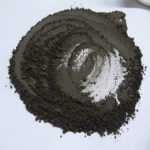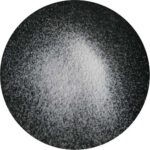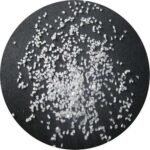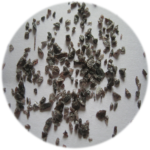Chrome sand for foundry is the product of natural chromite processed by crushing and screening, and its main chemical composition is Cr2O3. This kind of sand has stable heating volume and high thermal conductivity.
When in contact with molten metal, it not only has a good anti-alkaline slag effect, but also does not chemically react with iron oxide. So what are the functions of chromite sand? The editor of Haixu Abrasives will give you detailed answers.
The main chemical composition of chrome ore sand is cr2o3. This kind of sand has stable heating volume and high thermal conductivity. The characteristics of solid phase sintering can well avoid the penetration of molten metal and prevent sand staining defects. It is suitable for raw sand and coatings of various stainless steel, alloy steel and carbon steel for progressive core making.
The role of chrome ore 1. The thermal conductivity of chrome ore is several times greater than that of silica sand, which can increase the cooling rate of castings. Therefore , chrome
ore can play the role of an external cold iron in practical applications;
Influence of refractoriness The particle size of chrome ore can significantly affect its refractoriness. In the past, it was thought that if the grain size was too coarse, the brightness of the casting surface would be reduced. However, the surface of the sand mold and sand core made of chrome ore is usually sprayed with a certain thickness of paint, so that the brightness of the casting surface is hardly affected.
3. Chrome sand has a good anti-alkaline slag effect, and does not react with iron oxide; therefore, in practical application, chrome ore can prevent thermochemical sand sticking; 4. The
harmful impurity in chrome ore is carbonic acid Salt (CaCO3 MgCO3), when it comes into contact with high-temperature metals, it synthesizes CO2, which is easy to cause pores in the casting; usually, the chrome sand containing carbonate is roasted at 900°C-950°C to make the carbonic acid in it Salt synthesis.
5. During the molten metal casting process, the chrome sand itself undergoes solid-phase sintering, which avoids the penetration of the molten metal, thereby avoiding mechanical sand sticking;




















